City Government
Is a City Marshal System in the City’s Future and Updates on the DDA and RDA [Podcast]
Published
2 years agoon
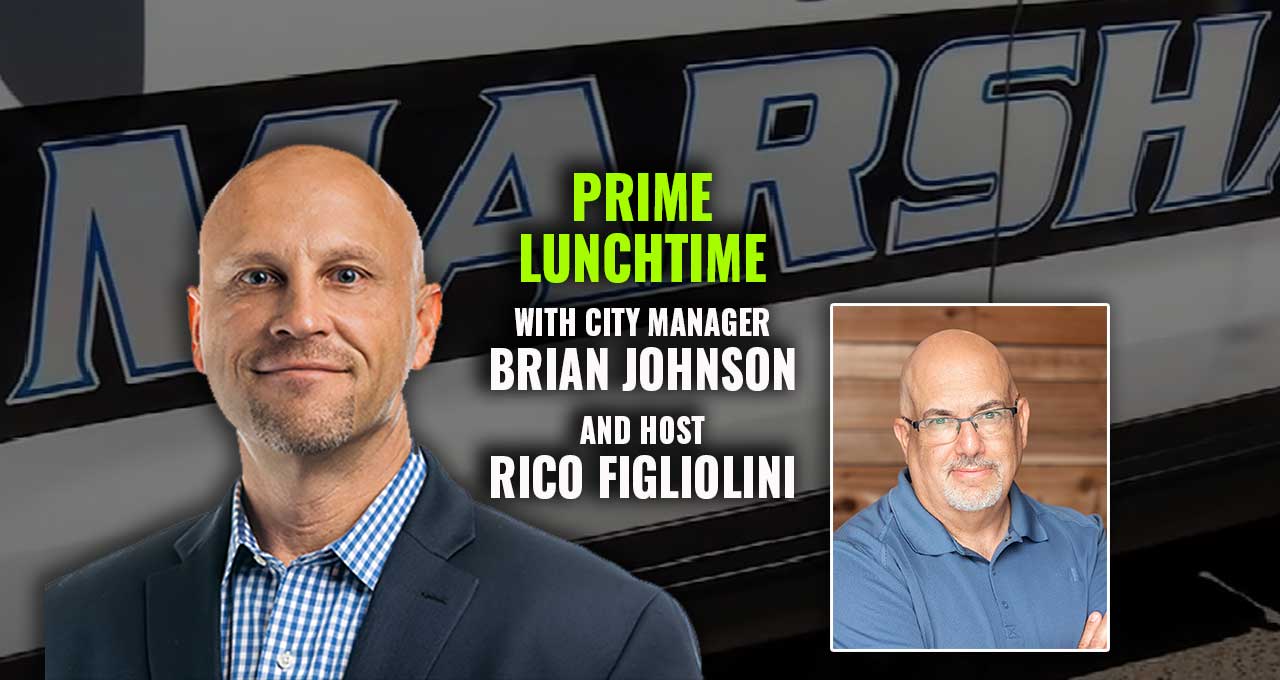
Is a City Marshal system in our future and what would it look like?
After a short hiatus, Rico Figliolini and Brian Johnson are back with a new episode of Prime Lunchtime with The City Manager. There’s a lot of new and exciting information about what’s happening in the City of Peachtree Corners. Today’s topics include; a possible future City Marshal System, The Redevelopment Authority and Downtown Development Authority plans, honorary road names, and much more.
Timestamp:
[00:00:30] – Intro
[00:02:44] – City Marshal Office System
[00:13:19] – The Authority of Future City Marshals
[00:18:58] – How the City Will Fund the City Marshals System
[00:23:37] – Honorary Roads Vs. Renaming a Road
[00:27:30] – Downtown Development Authority
[00:30:40] – Redevelopment Authority’s New Ideas
[00:36:57] – Closing
“One of our most sacred services as a city that we provide is to do everything we can to make sure this community is safe. A place to live, do commerce, recreate, and (City Council) felt like this will better provide that service.”
BRIAN JOHNSON
SCROLL DOWN TO YOUTUBE VIDEO
Podcast Transcript
[00:00:30] Rico: Hi everyone, this is Rico Figliolini, host of Peachtree Corners Life, and today Prime Lunchtime with the City Manager. Hey Brian, how are you?
[00:00:38] Brian: Rico. Good, how are you?
[00:00:40] Rico: Good, good. Much better. I finally got Covid. I’m on the other side of it, so everything’s all good. Before we get into the show, let me just introduce our sponsor, EV Remodeling Inc. They’ve been a corporate sponsor of ours for over a year now, both for the publication and these family podcasts that I do. So I want to thank them. Based in Peachtree Corners. Eli is a Peachtree Corners resident. Great guy, does great work. You can visit them at EVRemodelingInc.com and find out a little bit more about how he does design, build, and can renovate your entire home. So check him out. I want to thank him for being our corporate sponsor. We have a lot to discuss. I mean, within the scheme of things, we haven’t done this. We skipped a month. It was kind of quiet and stuff but there’s always new stuff. And certainly this podcast, we’re gonna be discussing the city’s look at activating a City Marshall system as well as discussing honorary road names and looking at the RDA and DDA, that’s the Downtown Development authority and the Redevelopment Authority and what they’re going to be doing. Let’s lead off with the City Marshall, the activation of that. I know this is in response to the concerns that citizens have had maybe not directly with the carjacking that happened at the QT and the death of a young man there. And of a young student at Norcross High School. Granted that was, he had left Norcross High School, and that was, I believe off campus that happened. But two violent crimes that occurred. Listen, the city of Atlanta all over the city, there’s, you can get notifications from 11 Alive at least five, six times a day of things happening. We’re thankful that the City of Peachtree Corners is not facing that type of crime wave or activity. But I find that this is somewhat of an innovative way of doing this. Instead of a full on police force doing something that could be a little different and still have the authority of the police. So Brian, tell us a little bit about how this came about and how you’d be looking at this and what you were tasked to do.
[00:02:44] Brian: So, you’re right, you hit on some of the origins of getting to this point. We have had some unfortunate incidents of late with deaths. There’s been some other crime and it’s not uncommon as we densify. As Metro Atlanta grows Peachtree Corners is growing. And the more people you have in an area, there’s just more opportunities for bad actors. So this unfortunate rise in these kind of things. And, you know, property crime is still our main criminal activity type here, but we are just becoming more and more of a target for bad actors. We’ve had intersection takeovers not too long ago, where you’ve got these car clubs that are seizing control of an intersection and doing all sorts of dangerous things with automobiles. You’ve had instances like that, even the failed carjacking that resulted in that death was a group of teens who specifically were targeting communities that had more affluence and better automobiles that they could do that slider crime where, you know, somebody’s pumping gas, or in this case filling air in their tires not near the driver’s side, and they slide into the seat. Because oftentimes the cars are left running, or at a minimum the keys are left in the ignition. So as a community, these instances and incidents rightly get the community, you know, like, hey, what’s going on? It seems like there’s more of it in a compressed period of time. And so we’ve started to notice this ourselves. And you’ve started to see within the last year or so more services and capital assets the city has brought into or brought to bear to help fight or prevent crime. Probably the best example of that would be of late the LPR camera system that we put throughout the city. Which our partnership with fūsus, a local Peachtree Corners Tech Park Atlanta based business that’s created a software platform that allows cameras of any type and owned by private entities. That if they give permission can be tied together to create a video surveillance net, if you will, for use by the police. But those efforts were ways for us to start saying, hey, are we doing as much as we can? And we deployed technology and we’ll continue to. That technology does work. We would prefer it to prevent crime. That’s the best crime is the one prevented. But even in the case of these two murders, our LPR cameras, the fūsus network, tying those and other privately owned cameras that voluntarily became part of the network. They ended up being the method in which the police were able to identify the gunman and find the gunman. So they work. Unfortunately, they were used after a crime was committed. We’d like to do things to prevent it, but that’s examples of what we’ve done so far. But then of recent times, council tasked me with presenting back to them in my opinion, based on all the experts I brought to bear, are we doing absolutely everything we can to make sure Peachtree Corners is a safe community to prevent or call it deflect crime away from our community? Are we doing everything and there were or is, since this hasn’t gone live yet, there is some areas in which there’s a gap. And some of those areas get into, everything from as good of a job as Gwinnett County Police Department’s West Precinct is doing. And they’re gonna remain our official police department, no doubt. But they’re handcuffed with everything from staffing shortages to even policy constraints that a countywide police department has. That if we had something that was solely focused on the city doesn’t have. And so there are sometimes gaps in the ability to direct resources based on Peachtree Corners specific needs. The enforcement of local ordinances and not countywide ordinances. And so I had to honestly, based on the assessment that my team came up with, honestly say that we weren’t doing quite everything and there was this gap that we needed to fill. And so there’s two ways to fill it. One is to stand up our own police department, which we do not want to do. And when Gwinnett PD does have the resources, they are providing a great service for us. But the other way to fill this gap, and this gap is a gap kind of between code enforcement officers, which are specifically oriented to enforcing local code and local code only and law enforcement, that’s enforcing state law. There is a gap. The gap can be filled if we stood up what we’re calling City Marshal office, very similar to what Sugar Hill has. Beauford has both Gwinnett municipalities that have an arrangement with Gwinnett PD, but they identified a gap between their code enforcement and law enforcement that they wanted to fill. So very similar to that, and that is to stand up this program. And the positions would be filled by POST certified officers. POST standing for police officers standard and training. Which is to the, you know, average viewer here is police academy. Having gone through police academy and all the training and to maintain all the certifications that you need to have certain authorities that a code enforcement officer who’s not POST certified will not be able to have. And so the intent here is to have some people who are able to fill this gap by the authority vested in their position. And be able to be controlled by the city so that they can be directed in areas that might be really important to Peachtree Corners, but it’s not, Gwinnett PD does not have the resources to specifically address. A good example of late would be, you mentioned the shooting of the Norcross High School student. That was partly driven by Norcross High School students leaving school during school hours. Truancy, if you will. And there is a truancy problem, of students cutting class and cutting through the woods into the back of businesses that border Norcross High School. Those businesses are being adversely affected. The shooting was an unfortunate result of it. But the truancy continues on students that are trespassing and then doing things like destroying property, dealing drugs, doing drugs.
[00:10:32] Rico: Right. And we were talking a little bit about that before too. About how school security are really not able to stop a kid from leaving the school short of tackling them, if you will.
[00:10:44] Brian: Well they can’t even do that. I mean, Rico, you’re right.
[00:10:47] Rico: I know I’m being facetious.
[00:10:48] Brian: Yeah, yeah. Yes.
[00:10:49] Rico: They can’t touch a kid. I understand. So some of these kids are not respectful of rules maybe, and they’ll leave the school anyway.
[00:10:55] Brian: That’s right. And when they don’t have a support network at home the school is limited to what it can do in the hours that it has the student. And so the discipline within there is certainly been newsworthy recently. But beyond that, when there are instances where they know and have evidence that the kid skipped school, they weren’t in class or whatever. You know, they’re limited in what they can do. And so it’s going to continue to be a problem. Not to say that every school doesn’t have it, but these, some of these students who potentially are bused there so they don’t have transportation or whatever. They’re just going and they’re cutting into the woods and they’re creating problems for local businesses. Now I bring that up to say there’s going to be a lot of little things brought together to help deal with this. But what we don’t currently have is, Gwinnett County PD does not currently have enough staff to run a presence patrol for certain hours of the day where it’s more problematic. And so if we had an internal City Marshal, and it’s important to us because it’s important to these businesses. I can tell City Marshall I want you to go out to the school and I want you to do a presence patrol say during the hours where there’s gaps in these kids’ schedules, they have a free period, and that’s where they tend to cut class and I want you to be driving around the back of those businesses. I want you to be a deterrent to those students. And I want you to be a resource for those. This will allow us to do those kind of things. This will allow us to detain somebody until a Gwinnett Police Officer gets there to arrest them. If they were a witness to the commission of a crime, it allows local code to be enforced at a level that a non post certified code enforcement officer cannot do. And it allows code to continue to make sure that the city is looking in the way it does that buildings are built safe, that properties maintain properly, all that stuff. They continue to do this and now we have, right now it looks like it’ll probably be three City Marshals.
[00:13:16] Rico: Is that to cover a 24 hour period, by the way?
[00:13:19] Brian: No, we’re not needing to run 24 hour at all. That’s again what Gwinnett PD is tasked with. 911 still operates the same. But another example would be the enforcement of the city’s alcohol licensing process. Those who serve alcohol have to get an alcohol license and oftentimes alcohol can be the problem of why certain businesses are not operating properly. Enforcing of that, maybe even pulling license of establishments that are not being good actors. That is a function that unfortunately without City Marshals, we have to coordinate with Gwinnett PD. Because they’re the ones that have to have the authority to enforce certain parts of that. So we depend on that. Massage parlors and licensing of those and trafficking is something that we currently have to use Gwinnett PD. Even when law enforcement gets it to a certain point, we have to stop there because we don’t have POST certified officers that would have that. This will allow us to address those. So it’s filling that gap that right now exists. We don’t have to stand up a police department. We have a good police department. They’re strained by some policy and staffing. But we can, in addition to the technology we’re using, we can have our own individuals who have the same authorities. They’re going to exercise them in a very narrow area.
[00:14:48] Rico: Right.
[00:14:49] Brian: They don’t have the same authorities as Gwinnett PD. And it’ll allow us to fill that gap. And that is what I presented to council and that is what council said, we like it. Go back and give us the exact details, the table of organization and equipment of how it’ll look. And that’s what I’m doing. But the concept of standing this up, council said one of our most sacred services as a city that we provide is to do everything we can to make sure this community is safe. Place to live, do commerce recreate, and they felt like this will better provide that service.
[00:15:27] Rico: Right. So just on a couple of little details, detail things, just clarification for some people. POST certified means they’ve gone through the police academy, the same police academy every other police officer has to go through. Same type of training. How to interact with individuals and all that stuff.
[00:15:46] Brian: Use of force.
[00:15:48] Rico: Correct.
[00:15:48] Brian: The steps of escalation. All the same stuff. Now, mind you again. By policy, we’re going to end up restricting them to a very narrow left and right limit. And that’s the gap that we currently have. So they’re not gonna be going out. The only time I see them working off hours would be if we’re having problems with certain things and they need to be out then. But code enforcement does that by, just so that you know already, is they sometimes code infractions are done after business hours. And so we have a cycle of, there’s a code enforcement officer that works a weekend day every month. They rotate through, but generally speaking, they’re still the normal eight to five type of code enforcement. This will be the same.
[00:16:37] Rico: Same on this. Three officers probably working at the same time through the week.
[00:16:42] Brian: Mostly. Yep.
[00:16:43] Rico: Individual cars for each one of them. Working closely with, or when they need to, with Gwinnett Police.
[00:16:49] Brian: Oh, absolutely.
[00:16:50] Rico: And if they end up arresting someone, they’re not really arresting someone. They’re going to detain them, most likely in the back of the Sheriff’s car
[00:16:58] Brian: Rico. A very important point is, we’re not wanting to get into starting to arrest under our authority. Even though the city has that authority and these officers would have been properly certified to do it. Gwinnett PD is going to still be our police. So these will have the authority, but they, at most would detain temporarily until a Gwinnett PD officer showed up to actually arrest. So, we’re not wanting to get into where you start having unnecessary use of force and all that stuff. No.
[00:17:33] Rico: Okay. And as far as fūsus goes, or the eye in the sky real cloud crime center.
[00:17:39] Brian: Real cloud crime center, right. And just so that you know also that program, the official Connect Peachtree Corners program. First week of January is going to be the big push where we’re going to start encouraging, because it’ll be set up and ready to receive, encouraging everybody that has video camera to at a minimum, register their camera to let Gwinnett PD know you have one. So that if there is a crime in the area of that camera, Gwinnett will know exactly who has cameras in the area, how to contact them to request the video feed of a particular time period. That will be the connect PTC through fūsus, that program will be opened up first week of January. So yes, that is a critical part of the City Marshals because now they also would end up being able to monitor video feeds. Including the city’s, we’ve got what, 82 cameras out at the Town Center now. They will be able to use that. It’s going to be a resource for them to use. And, we can charge people and run them through municipal court. So yeah, these are all assets that we want to better utilize or more utilize than what Gwinnett PD has the resources to do.
[00:18:58] Rico: And I know that some people may ask this, so this will be an important question. How will this be funded? This additional police force, if you will, or sherriff force. It’s within the same budget, right? I mean, there’s no, someone’s gonna say, does that mean that the mil l age rate will start existing or something? So tell us.
[00:19:16] Brian: Thank you for teeing that very, very important question up for me. It’s very important to know that this is all being done within the current and anticipated revenue streams that the city gets on an annual basis. Meaning we can afford it within our own budget. Which is a very important point. I mean, we’re very proud that we’re the second largest municipality in Georgia with no city property tax. And Council does not want to be the first council to levy that. So that was an important part of my proposal to them. Their first question was, alright, great. Sounds good. We see the gap. We see why you’re recommending this to fill the gap. Can we afford it? And, you know, I needed to know that before. And the great answer was yes, we can. We were generating enough fun balance year after year that the run rate for three positions, we can afford. We’ll have a one time large capital, we’re going to have to purchase three police cars, uniforms, some equipment. But once you purchase it, you’re just building in our every, however long, we’re gonna have the life cycle of a police car. Especially one that’s not doing high speed chases or whatever. It’s a pretty long one. But yeah, we’ll have that and then it’ll just be the annual run rate. But it is not going to at all, result in any, none of our services are going to result in us having to levy a city millage rate.
[00:20:46] Rico: Cool. Alright. So if anyone has questions on this, they should put comments in the comments, depending where you’re watching this or listening to it. Or reach out to us and we’ll be doing a further in-depth article on this.
[00:20:58] Brian: And Rico. It’s important to note that while council, considering public safety to be a sacred responsibility that council has. So they will not leave any stone unturned, which is why they’re supportive of this. But the exact details, the exact table of organization and equipment is being done right now. So there are a few details that I may not know yet. This is anticipated to be part of the FY 2024 budget, which starts July one of 2023. So July one of, this coming July one would be, the first time that it would end up becoming a live program because I’m building it into next year’s budget. Which is what starts July one of next year. So this isn’t something that’s going to happen in a couple weeks or even a couple months. We’re looking at six months from now.
[00:21:54] Rico: Okay. Alright. Planning. Everything needs a plan and it takes time to do these things.
[00:22:00] Brian: I mean, think about simple things like we’ve got to get in and lay out all of the policy stuff so that our insurance provider, the general liability insurance provider for the city can include this type of activity in our insurance plan. I mean, you know, people are, you don’t think about that until you get into it. And you know, are we going to have, require body cams so when they’re interacting with somebody that camera’s on. And how do we write the policy so that when they, even though they have the same authority as a police officer, we’re saying, no, this is your lane you’re going to operate in. We’ve gotta write got to policy. And so, there’s a lot of work involved. But you know, what I just told you is essentially the program. And again, we’re not the first to do this. Sugar Hill would be a great example of a decent sized city, not quite our size, but I think their last census was 25, 30,000 people. But they, Gwinnett PD is their police department provider through an intergovernmental agreement like we have. But they also have City Marshals to fill this gap. And so our program would be very similar to those, but it allows the city to be able to control assets, to fill gaps that right now we can’t really fill either very easily. Or in some cases can’t fill really at all.
[00:23:25] Rico: Alright. So more information to come on this. Like you said, there’s logistical issues that you have to deal with. And even interviewing officer candidates for the position.
[00:23:37] Brian: Exactly.
[00:23:37] Rico: Yeah, so there’s a whole bunch of stuff. It all takes time. Let’s move on a little bit towards something a little different about new policy that’s going to be put in place or being looked at to put in place about honorary roads versus renaming a road. So tell us a little bit about where that might be going and how that’s come about.
[00:23:54] Brian: So we had some requests of late of having certain people that have a prominent place in this city’s existence or the population of the area. An example of that would be, you know, Paul Duke. Very prominent name in the creation of, or the population of the area, creation of Tech Park and in the city. We’ve had some other instances where there’s an individual that played a prominent role and their family or friends or others are like, we should rename a street. And while that is done and it’s all fine, renaming streets are not always a popular thing to do and certainly can be complicated. And can cost people money. You rename a street of a business is on and they can have stationary with their address, business cards. You rename a street that a person is getting their prescriptions mailed to them, and they’re worried that it won’t get mailed to them in the right place when it changes. So to be careful, and as a result of me laying out to council when they said, hey, City Manager, what about these requests? Should we? I was like, you know, you can. It’s your right. But I laid it out. They were like, yeah, what other options are there? And there’s one, and there’s an honorary street name. And that is, you could have Main Street be the street name. Then even on the street sign underneath it, it could be the honorary Rico Figliolini Way. You know, or whatever. And so they liked that idea because it doesn’t change any of the addresses or anything, but it does recognize somebody. My community development director, Diana Wheeler, created a great policy on who would qualify. Like, I believe in the policy, you can’t be alive. You’ve got to have certain things. So the certain criteria for it, and that’s what the policy is going to be. So when somebody comes to the city and says this, we can say, no, we don’t entertain formal street renaming. But we do have an honorary street name program or policy, here’s what it is. And if the individual that you’re considering it being renamed qualifies, then well council can consider it and they vote on it, yes or no. And a different colored sign that would go, I guess above the main street name.
[00:26:14] Rico: Right. It sounds like that’s where it would be. I’ve seen them done before like that, where they’re above the main road name. Like a little smaller. So it’s less confusing, I guess. Alright. So, and that’s probably, that’s a policy that might be put in place in, I’m sure in the next City Council meeting.
[00:26:30] Brian: Well, it’ll get voted on this Tuesday, just to remind you.
[00:26:32] Rico: This Tuesday.
[00:26:33] Brian: Our December Tuesday Council meeting is moved earlier because of Christmas. So this coming Tuesday, that’s when they’re entertaining it. And based on their feedback at the work session when the policy is presented to them, I anticipate it’ll unanimously be approved. And so then we will, in fact on the same agenda, we have the very first official request for a street to be named. And it was to commemorate Perry P. Nesbit. The Nesbit family were one of the earliest settlers of Peachtree Corners. And so, that’ll actually be on the agenda after council considers the street renaming policy. So, I guess in theory, they could deny the street naming policy and then the Perry P. Nesbit request that would, obviously can’t happen. But I don’t anticipate that happening. Because, you know, council’s seen all the details so that could happen as early as Tuesday.
[00:27:30] Rico: Alright, cool. Two other things that are going on, or organizations. One’s the Redevelopment Authority, and the other one’s the Downtown Development Authority. So let’s take the DDA first, because you all are also filling some slots on those authorities currently. But part of the DDA right now exists. The mapping exists as an overlay. And the city council wants to be able to expand that it sounds like, to further go south on Peachtree Parkway towards Target and Dick’s Sporting Goods. Why expand it? And what does that mean, as far as, how that would affect the underlying area?
[00:28:10] Brian: So cities and counties, in probably all 50 states, they utilize authorities. Pseudo-governmental entities with boards of director appointed by the local governing authority, City Council, County Commission to oftentimes their goal is to facilitate economic development under certain column policy focus. So a Downtown Development Authority would be focused on facilitating economic development activity in an area defined as the downtown. And then a Redevelopment Authority would be doing the same thing, but they would have a redevelopment area of operation. And they’re really looking at areas that were developed once, but maybe it’s ran its lifecycle and their job is to facilitate activity in areas that have had initial activity. It’s not undeveloped wooded lots. These are, could be parcels or areas of a city that are seeing a decline in activity in that area. Or there’s a new better development they can consider. These authorities are created because they have certain flexibilities that the government itself does not have. And so they’re tools that cities and counties use because they’re more flexible. They can do things with developers that the city cannot do directly. A good example of that would be, Rico you could be a developer with one really innovative, awesome idea. You want to partner with the city to do something. The city is interested in doing it, and the city’s got to put money, or say it’s going to construct some aspect of it. Say we’re going to build a parking deck for your development as part of a public-private partnership. If the city does it, by law we have to bid it out. Or if we were doing a public-private partnership bid. We have to bid it out and we have to give it to the lowest qualified bidder. If you aren’t the lowest qualified bidder, we lose the right to work with you. Even if we thought your idea was the best. Authorities, like an RDA or DDA, can sole source. They don’t have to do that.
[00:30:37] Rico: They can move faster, also. There’s less red tape on that.
[00:30:40] Brian: Absolutely. And you know, sometimes the board members of these things that they have one focus. Whereas council is asked to do stuff all over the map and you know, they don’t sometimes have the time, energy, and focus to do some of this. And so they essentially delegate certain objectives to these authorities. And then these authorities run with it based on the, kind of objective constraints council gives them. And so these two boards they both exist. Of course at the end of the year we’re having to reappoint board members to other stuff too, like the planning commission, the zoning board appeals. But these two, why they’re probably unique is the DDA had three member and three slots open that council needed to fill. There were two people moved away, one passed away. And the DDA which played an integral role in the city initially, the Town Center was done through our DDA. The DDA was the one who brokered all of the public-private partnership stuff. But when it was done, we kind of shifted focus to the redevelopment authority and the south side of the city. Which is the zone, kind of the area of the city that the RDA was told, go forth and come up with a plan to enhance economic development there. And the DDA to finish up with them, the initial downtown area was drawn relatively small. Kind of around the Town Center, Forum area and that’s about it. We needed to expand probably down to the Target, Dick’s Sporting Goods, Publix area. Probably the most important part of that is by expanding it down there, it will encapsulate Tech Park. And Tech Park needs to be in the DDA’s area of concentration because they are going to be tasked with really rolling up their sleeves and seeing what we can do to continue to help Tech Park get reimagined. How can we utilize Curiosity Lab to fill vacant office space or to redevelop certain lots. They’re going to be a force multiplier and they’re going to be tasked with going and meeting with property owners and asking questions like, is the city doing everything it can to help you grow and be healthy? Meeting with developers to come up with creative ways to maybe develop their lots or fill vacant office space. And so that’s going to be their mandate. And we needed the board to be filled. And so they’re going to be filled, and that’s their mandate. And then the RDAs mandate, which is going into year two, they finished up a year in which they took their area of concentration, they did a big year long assessment of opportunities within it, and they presented those opportunities to council last month. And there were a couple of really good ideas and the lowest hanging fruit was taking inspiration from how the BeltLine has been used to revitalize areas of Atlanta. To do the same with our multi-use trail, which is our version of it. And they identified some areas along the Peachtree Corner Circle, kind of in between Holcomb Bridge Road and PIB for there to be some trailheads created for the trail system, but also for vehicles to be able to park at these trail heads. Then to become a community recreational amenity connected to our trail. And that will help spurn some of the redevelopment in the area. Maybe some enhancements or upgrades to some of the apartment complexes in the area. Maybe they’re getting better tenant. It becomes more enticing for people to live in the area because there are recreational amenities right there. Just like the BeltLine did in Atlanta. We want to do it right here. And so that’s the first, they have a number of ideas. But that one council has appropriated about 2 million for them to go ahead and acquire and construct some trail heads. Do the final design and construct these trail heads and start moving the trail off of these trail heads to ultimately connect to what’ll be, I think with all said and done, what we have identified, if it all goes well, it’ll be about a 20-ish mile trail system throughout all of the city.
[00:35:25] Rico: Wow. That’s very big. Is the 2 million from SPLOST or general funds, or how is that?
[00:35:30] Brian: It’s a mix of a number of them. There’s certainly some SPLOST, there’s certainly some storm water money because you’ve got some of the improvements are it’s gonna be done along Crooked Creek, that area. So some of the construction is storm water. So it’s a mix of revenue streams so that they have real money to do a real project. And it’s exciting. They took a year and they really came back to council with some really good ideas. Some are big and would be a very large, potentially larger mountain than the city’s prepared to do right this second. Which we didn’t want them to, you know, sky was the limit. Some of them are intermediate that they’re within reach, but there’s a few more things that we need to do. And this one was pretty simple. I mean, it’s a go out and acquire property. These are properties that are generally not developable because they’re in the floodplain stream buffer areas. Acquire it, design these trail heads, construct the trail heads, and let’s start. Let’s create this community amenity and let’s start capitalizing on it and use it to lift the entire area up and make it better.
[00:36:39] Rico: Cool. Sounds great. The RDAs, are those other suggestions, are the plans, were they presented at City Council?
[00:36:46] Brian: Yes sir.
[00:36:46] Rico: At some point? So they’re available somewhere for other people if they want to see what other ideas the RDA has in mind for the coming few years. Okay, cool.
[00:36:55] Brian: They’re on our website.
[00:36:57] Rico: Excellent. Great. So we’ve covered quite a bit. The biggest thing to me is the City Marshal system. And as you’ve explained that before, I mean, this wouldn’t start until likely July 1st, which is the budget year for the city. And out of the existing funds, no extra funds are necessary. So it’s working out of the surplus of money the city has already on an ongoing basis. And city leadership has done a great job in keeping that surplus, to me it seems. And be able to have a good, strong budget to be able to do some of these things without having to raise any taxes or anything. So all good stuff, good leadership. Brian, it’s a pleasure to always talk to you about these things and finding out more about what the city’s doing.
[00:37:38] Brian: Thanks for the opportunity to keep our stakeholders as educated as we possibly can. And hey, have a great holiday. I hope everybody has a great, safe, enjoyable holiday, and we’ll be ready to hit the ground running beginning of next year.
[00:37:53] Rico: Yeah. Let’s not forget the end of the year is coming. And by the way, anyone that’s checking their mailbox, hopefully you’ll see a new copy of Peachtree Corners Magazine. Faces of Peachtree Corners. It’s about 20 people that help make this city a better place to live in. So check it out. Good talking to you Brian. Everyone enjoy the holidays. Be safe out there because God knows, even if you’re looking around, sometimes things can happen. So stay safe. Hug your family, you know, make sure you’re around, because you never know what might happen. Thanks guys.
Related
City Government
Councilmember Eric Christ: 2025 Peachtree Corners Municipal Elections
Published
4 weeks agoon
March 3, 2025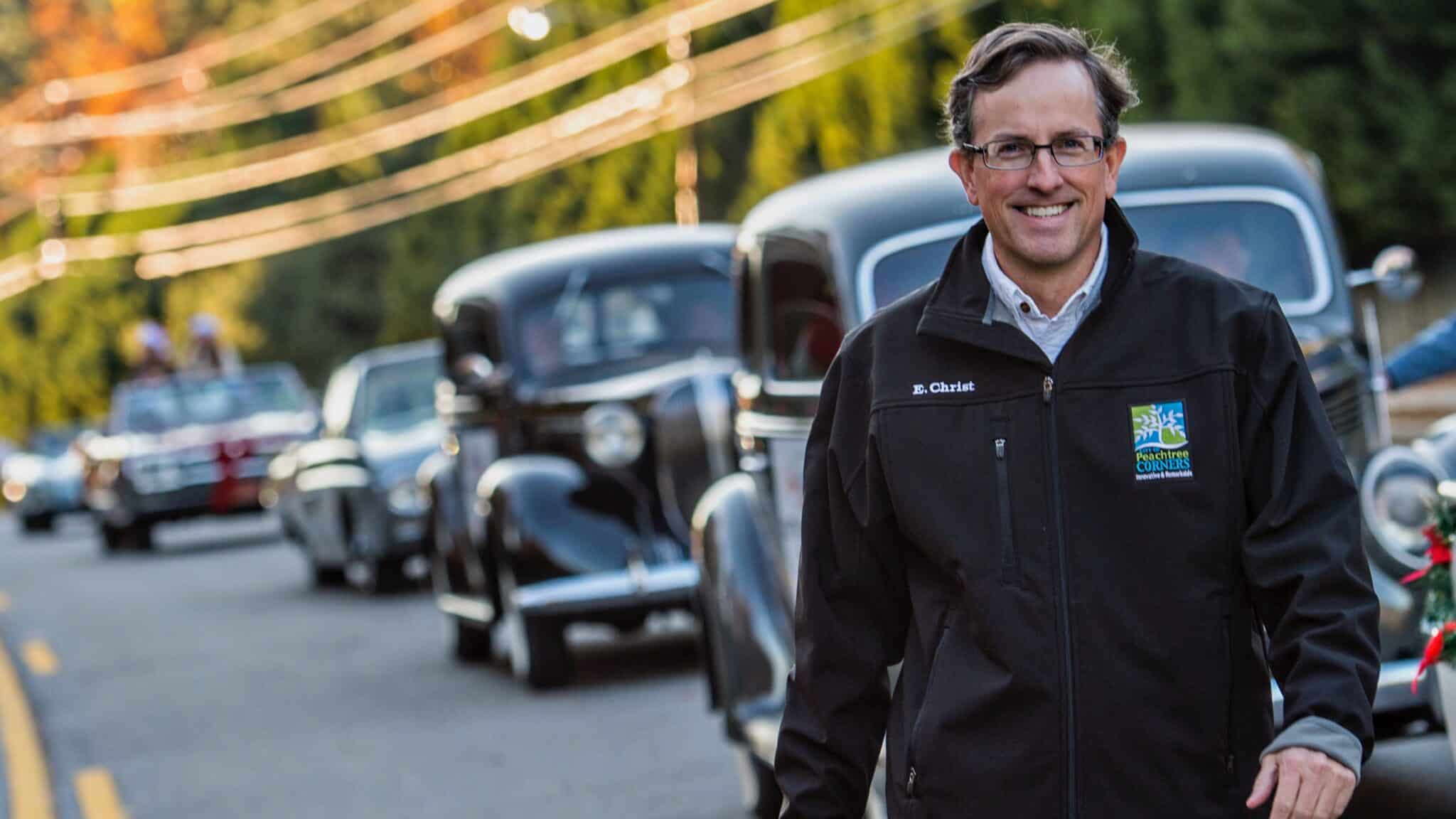
Source: Peachtree Corners Post 2 Councilmember Eric Christ’s recent newsletter.
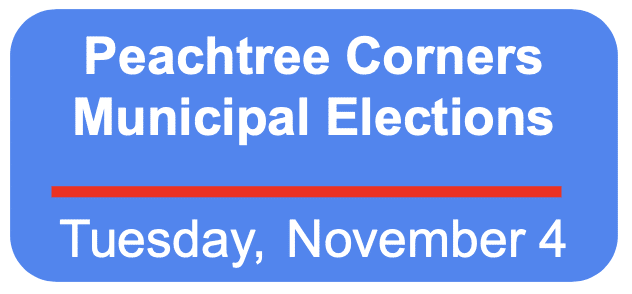
On Tuesday, November 4, we will have municipal elections here in the City of Peachtree Corners for three council seats. [And] for the first time since 2013, there will be a state-wide election on the same day as our city general election.
The state-wide election is to fill two seats on the Public Service Commission, which regulates Georgia Power and other utilities.
For the PSC election, the Gwinnett County Board of Elections will have all 156 county precincts open on November 4. Historically, Peachtree Corners has had a single voting location for city elections — at City Hall.
If we do the same this year, citizens who want to vote in both the PSC and the City Council elections will need to go to two places to cast their ballots.
A few years ago, I convinced the County Board of Elections to remove their prohibition against the Gwinnett Elections Department managing city elections. (Every county surrounding Gwinnett already offered this service to their cities.)
This means there is the potential of adding our city council elections to the county ballot.
I would like to hear your thoughts on the pros and cons of combining our city council races with the county’s for this year’s elections.
Please complete my brief survey by clicking here.

To sign up for Councilmember Christ’s newsletter or find him on social media, visit linktr.ee/votechrist.
You can read more from his latest newsletter updates here and here.
Related
City Government
City of Peachtree Corners Receives Distinguished Budget Presentation Award
Published
2 months agoon
January 31, 2025
For the eighth year in a row, the City of Peachtree Corners has been esteemed with the Distinguished Budget Presentation Award. This award was presented by the Georgia Finance Officers Association (GFOA) for the City’s Fiscal Year 2025 budget submission.
The award represents a significant achievement by the entity. It reflects the commitment of the governing body and staff to meeting the highest principles of governmental budgeting. To receive the budget award, the entity had to satisfy nationally recognized guidelines for effective budget presentation. These guidelines are designed to assess how well an entity’s budget serves as a:
- policy document
- financial plan
- operations guide
- communications device
Budget documents must be rated “proficient” in all four categories and in the fourteen mandatory criteria within those categories to receive the award.
Certificate of Recognition
When a Distinguished Budget Presentation Award is granted to an entity, a Certificate of Recognition for Budget Presentation is also presented to the individual(s) or department designated as being primarily responsible for having achieved the award.
“Congratulations to the entire finance team on receiving this award,” said City Manager Brian Johnson.
“This recognition is a testament to our team’s hard work, professionalism and commitment to excellence.”
There are over 1,700 participants in the Budget Awards Program. The most recent Budget Award recipients, along with their corresponding budget documents, are posted quarterly on GFOA’s website.
Award recipients have pioneered efforts to improve the quality of budgeting and provide an excellent example for other governments throughout North America.
About the GFOA
The Government Finance Officers Association (GFOA) advances excellence in government finance by providing best practices, professional development, resources and practical research for more than 21,000 members and the communities they serve.
About the City of Peachtree Corners, Georgia
As the heart of what is being called #SiliconOrchard in the metro Atlanta region, Peachtree Corners is a vibrant municipality that’s home to more than 45,000 residents and an innovation hub that houses some of the world’s most disruptive technology companies.
As the United States’ premier smart city powered by real-world connected infrastructure and 5G, Peachtree Corners serves as the model for how government and private industry can better collaborate to create a better future for society and business.
From the world’s first deployment of teleoperated e-scooters to fully autonomous shuttles being utilized by actual residents, and from a solar roadway to the largest electric vehicle charging hub in the region, Peachtree Corners is where the most future-forward Internet of Things (IoT) and sustainable technologies come to life for the benefit of its people and the world.
For more information, visit peachtreecornersga.gov.
Related
City Government
BRACK: How one city operates without property tax
Published
2 months agoon
January 30, 2025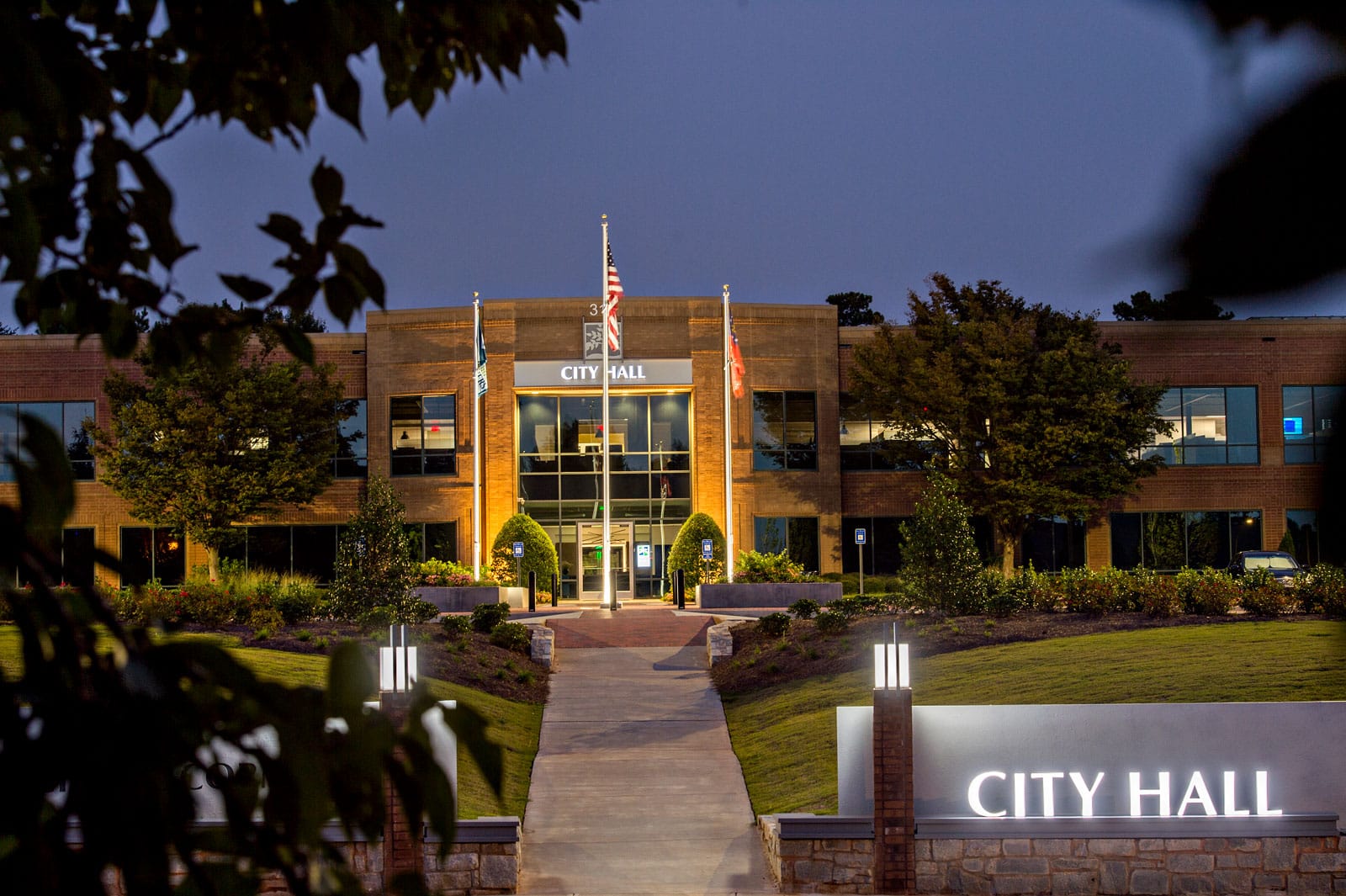
Some people lament paying taxes. They don’t understand that taxes allow us to live in a more civilized manner, helping and protecting us all along. That’s why I don’t mind paying reasonable taxes for the safety of everyday living.
Many don’t recognize it, but you are often paying a small tax without realizing it as you go about your everyday business….but it’s not called a tax.
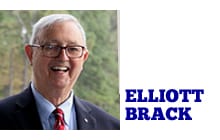
It’s called a “fee.” Each time you pay your power or utility bill and cable bill, your insurance premium, when you rent a hotel room or car…and other ways…you are providing a few cents or dollars to help fund mostly local government.
The newly-minted City of Mulberry (and previously Peachtree Corners) will run its government without taxing property owners paying a tax to fund its operations. How so? Entirely from fees.
Let’s visit what the other city without property taxes, Peachtree Corners, is doing.
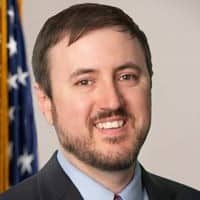
We talked with Cory Salley, who is the finance director for Peachtree Corners. He sent along a graphic which shows where Peachtree Corners gets its funding, as well as how it is spent. (See graphic.)
For the most part, Peachtree Corners is funded by fees. The biggest comes from Georgia Power Company, paying $2.8 million in fees for the city for 2025. Other utilities include $450,000 from Atlanta Gas Light Company; $250,000 from Comcast; $70,000 from Direct TV; and $42,000 from AT&T. (That last figure was interesting, in effect, showing how few people have land-line telephones anymore.) Altogether, utility fees brought in $4.3 million in Peachtree Corners for 2024.
Another bucket of fees include $3.8 million in insurance fees. This comes in one check from the Department of Revenue, which collects insurance fees for all cities.
Each business in Peachtree Corners pays an occupational business license tax. With lots of professional offices in the city, these businesses contribute $4.4 million to the city coffers.
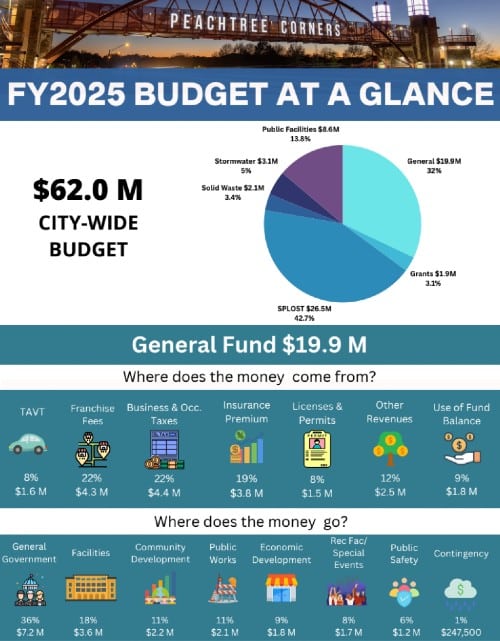
Other fee collections for 2024:
- Alcoholic licenses and sales: $1 million.
- Zoning and land development permits: $1.4 million.
- SPLOST funds on sales within Peachtree Corners: $10 million.
- Automobile and vehicle purchases: $1.7 million. This is interesting: no matter where you buy an automobile in Georgia, part of the sales tax reverts to the city where you live.
Then there are other funds coming to the city; stormwater fees, grants, solid waste, etc. Altogether, it added up to approximately a $40 million income to run the city.
Some specifics and the way they are figured:
- Real estate transfer taxes: This tax is imposed at the rate of $1 on the first $1,000 and 10 cents on each additional $10 on any conveyance of real property when the value of the interest transferred exceeds $100.
- Distilled Spirits—up to 22 cents per liter on package sales and up to 3 percent of the sale price of a drink on sales to the public;
- Wine—up to 22 cents per liter; and
- Malt Beverages—up to $6.00 per bulk container (no more than 15.5 gallons) to be paid by the wholesaler and up to 5 cents per 12 ounces when sold in bottles, cans or other containers.
- A municipality may levy a business license tax on depository financial institutions (such as a bank.) The maximum rate of this tax is 0.25 percent.
- Hotel-motel tax: a municipality may levy a hotel-motel tax at a rate of 3 percent or less or at a rate of 5, 6, 7, or 8 percent. (Yes, let the out-of-towner pay!)
Perhaps this gives you an idea of how a city, like Mulberry in the future, can operate without property taxes.
Have a comment? Send to: elliott@elliottbrack
Written by Elliott Brack
This material is presented with permission from Elliott Brack’s GwinnettForum, an online site published Tuesdays and Fridays. To become better informed about Gwinnett, subscribe (at no cost) at GwinnettForum.
Related
Read the Digital Edition
Subscribe
Keep Up With Peachtree Corners News
Join our mailing list to receive the latest news and updates from our team.
You have Successfully Subscribed!

Expanding Horizons: How KGM Technologies Balances Defense, Medical, and Precision Manufacturing

Why Patient Experience Matters: A Conversation with Dr. Aristo Shyn

Burn The Ships: Alex Wright on Committing to Success & Helping Businesses Thrive

Public Notice: Scheduled Maintenance on Town Center Parking Deck

Mike Schleifer to Leave Alliance for Lincoln Center Theater

Inside the Solicitor General’s Office: Lisamarie Bristol on Justice in Gwinnett County

Holy Week, Easter Sunday and Church Events in April

Holy Week, Easter Sunday and Church Events in April

Expanding Horizons: How KGM Technologies Balances Defense, Medical, and Precision Manufacturing

Mike Schleifer to Leave Alliance for Lincoln Center Theater

Public Notice: Scheduled Maintenance on Town Center Parking Deck

Inside the Solicitor General’s Office: Lisamarie Bristol on Justice in Gwinnett County

Why Patient Experience Matters: A Conversation with Dr. Aristo Shyn

Burn The Ships: Alex Wright on Committing to Success & Helping Businesses Thrive

Fun for a Good Cause at Curiosity Lab’s Inaugural 5K Run/Walk

Light up the Corners [Video]

Capitalist Sage: Business Leadership in Your Community [Podcast]

Cliff Bramble: A Culinary Adventure through Italy

Top 10 Brunch Places in Gwinnett County

A Hunger for Hospitality

THE CORNERS EPISODE 3 – BLAXICAN PART 1

Top 10 Indoor Things To Do This Winter

The ED Hour: What it takes to Remove Barriers from Education






